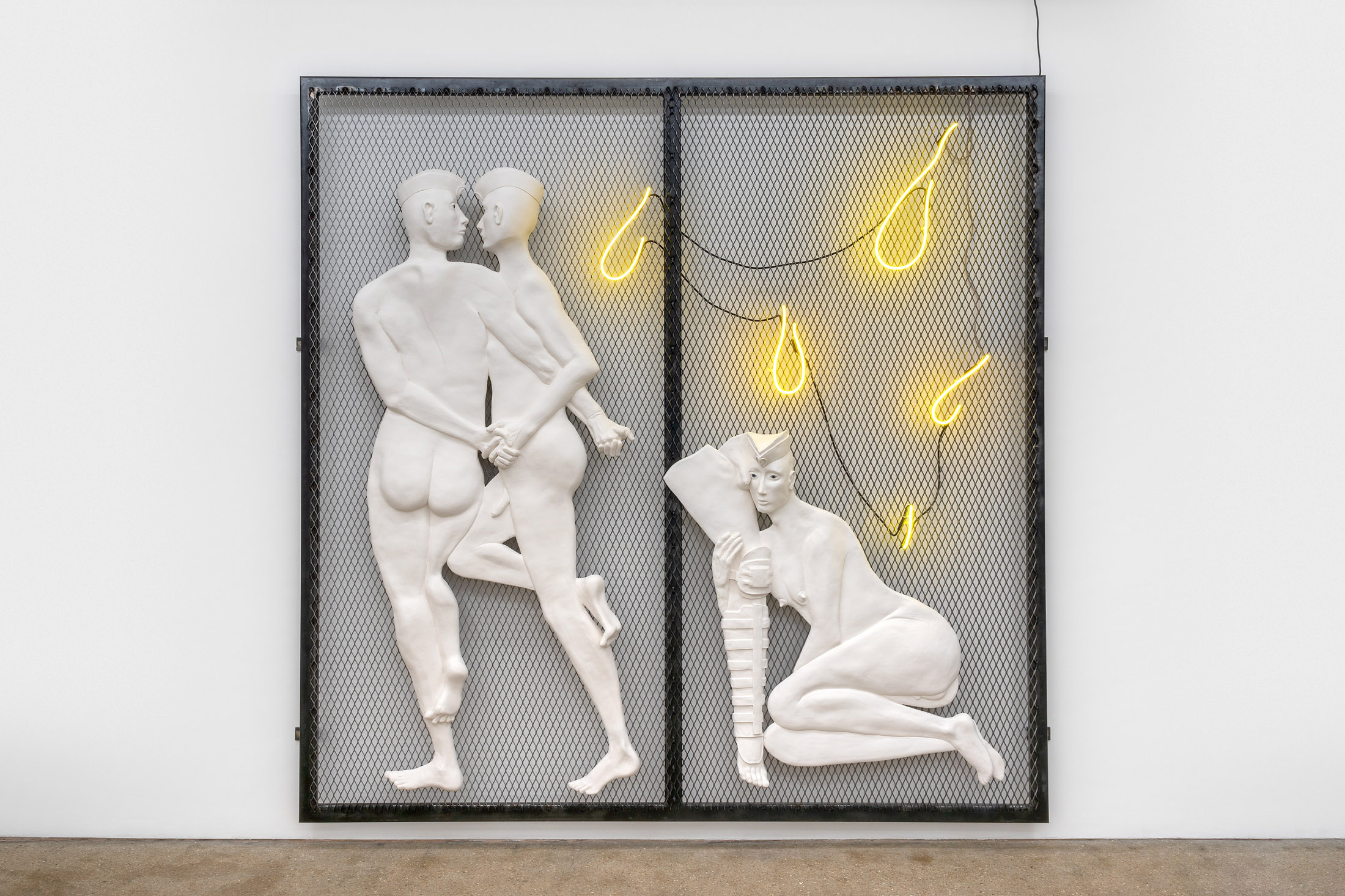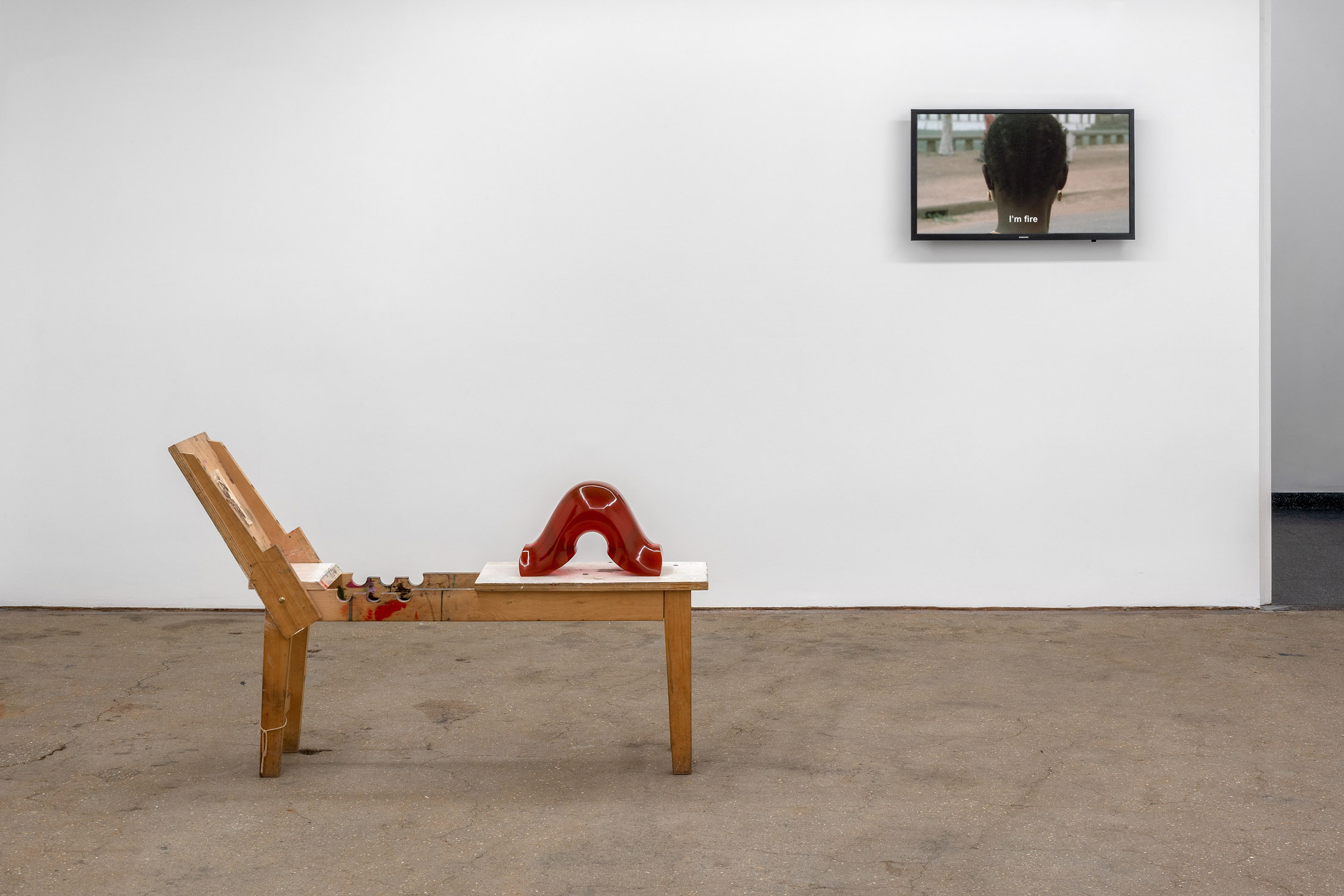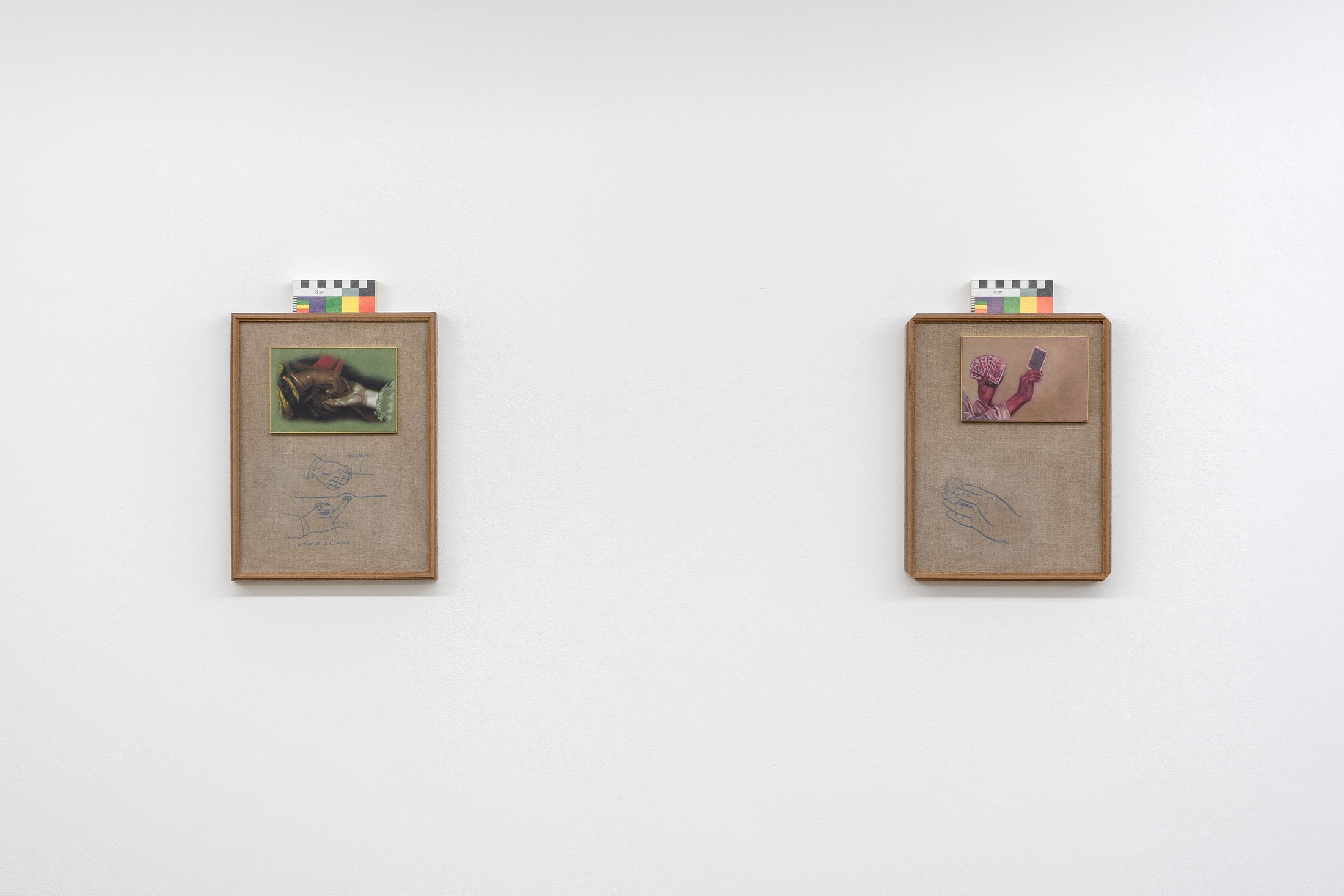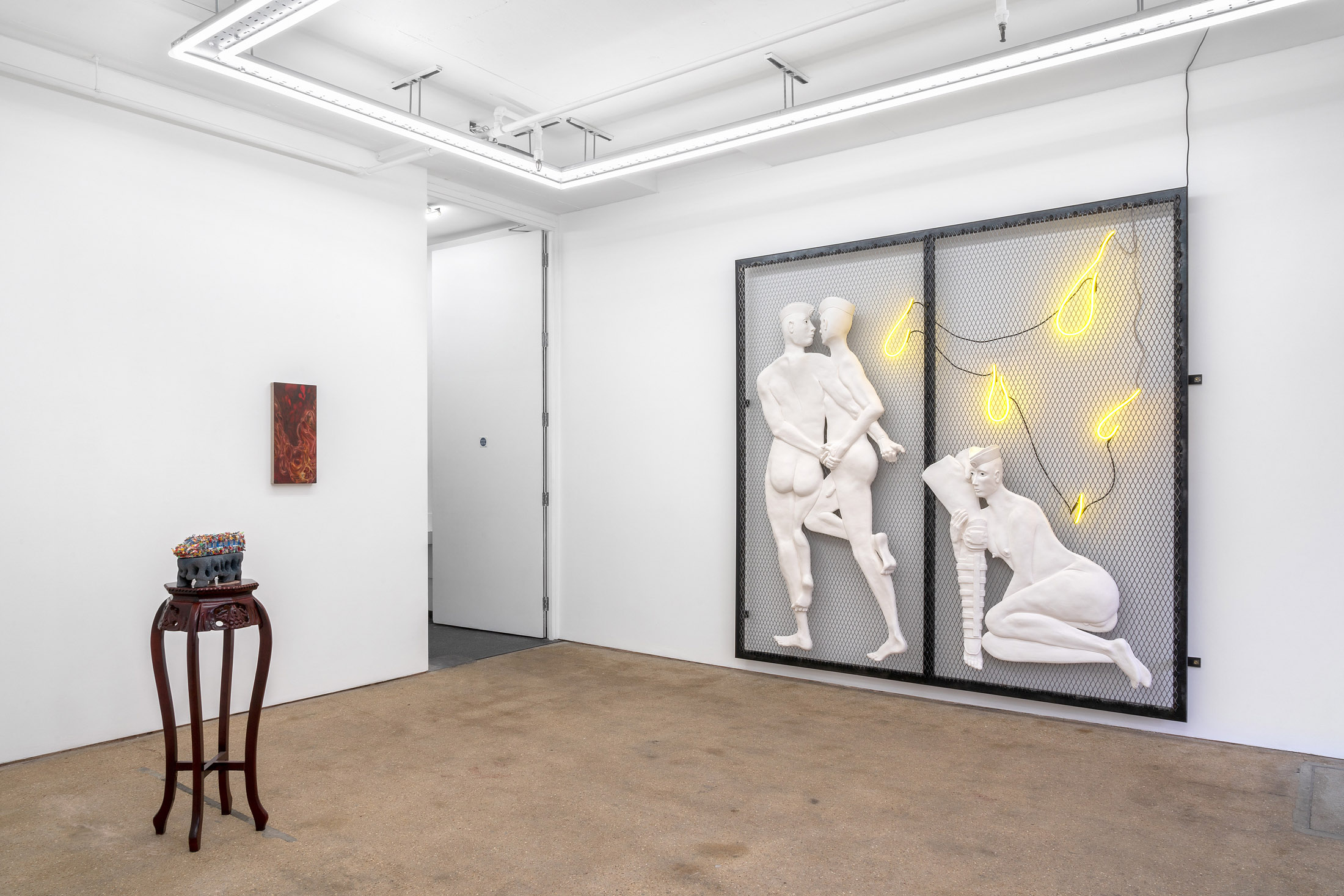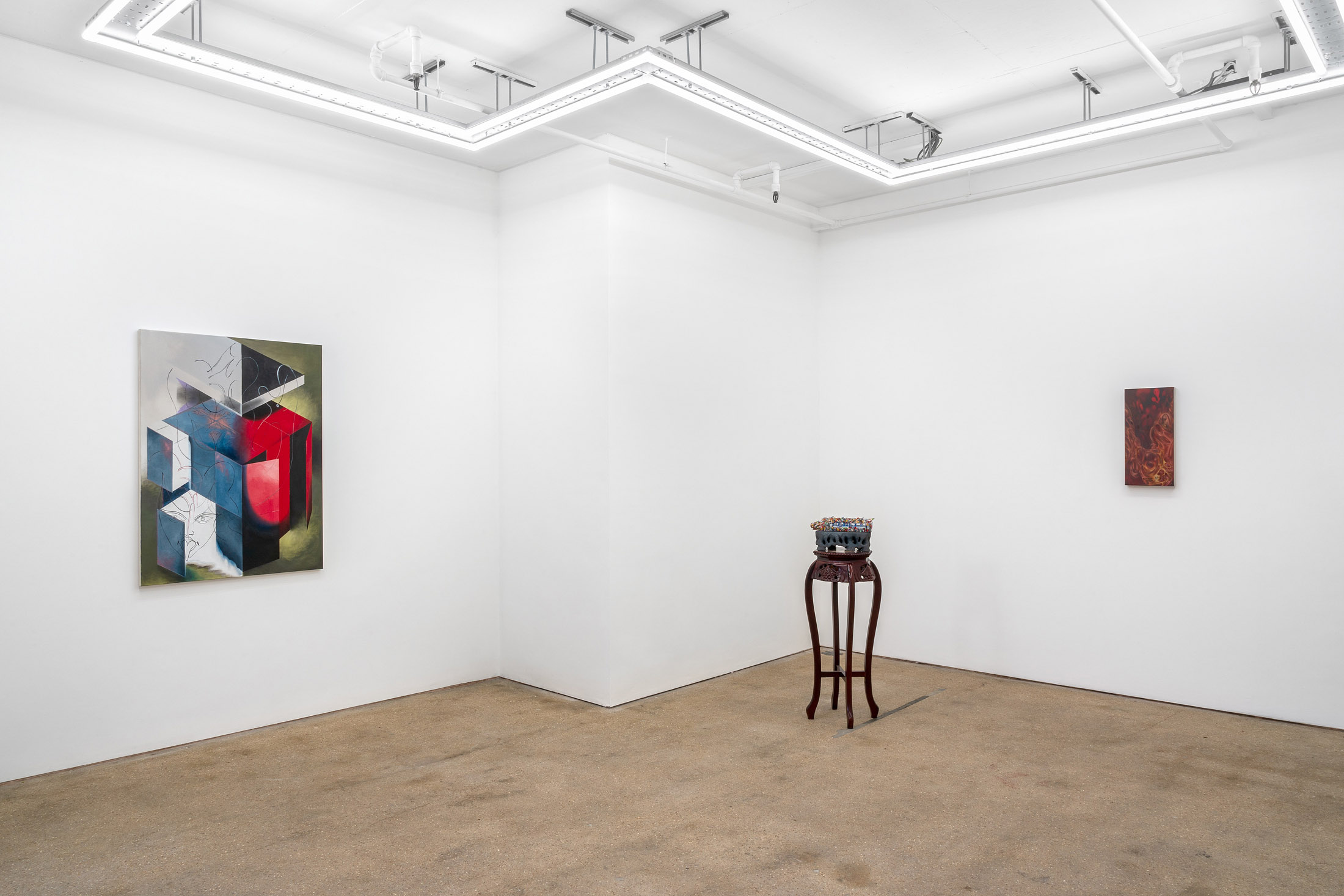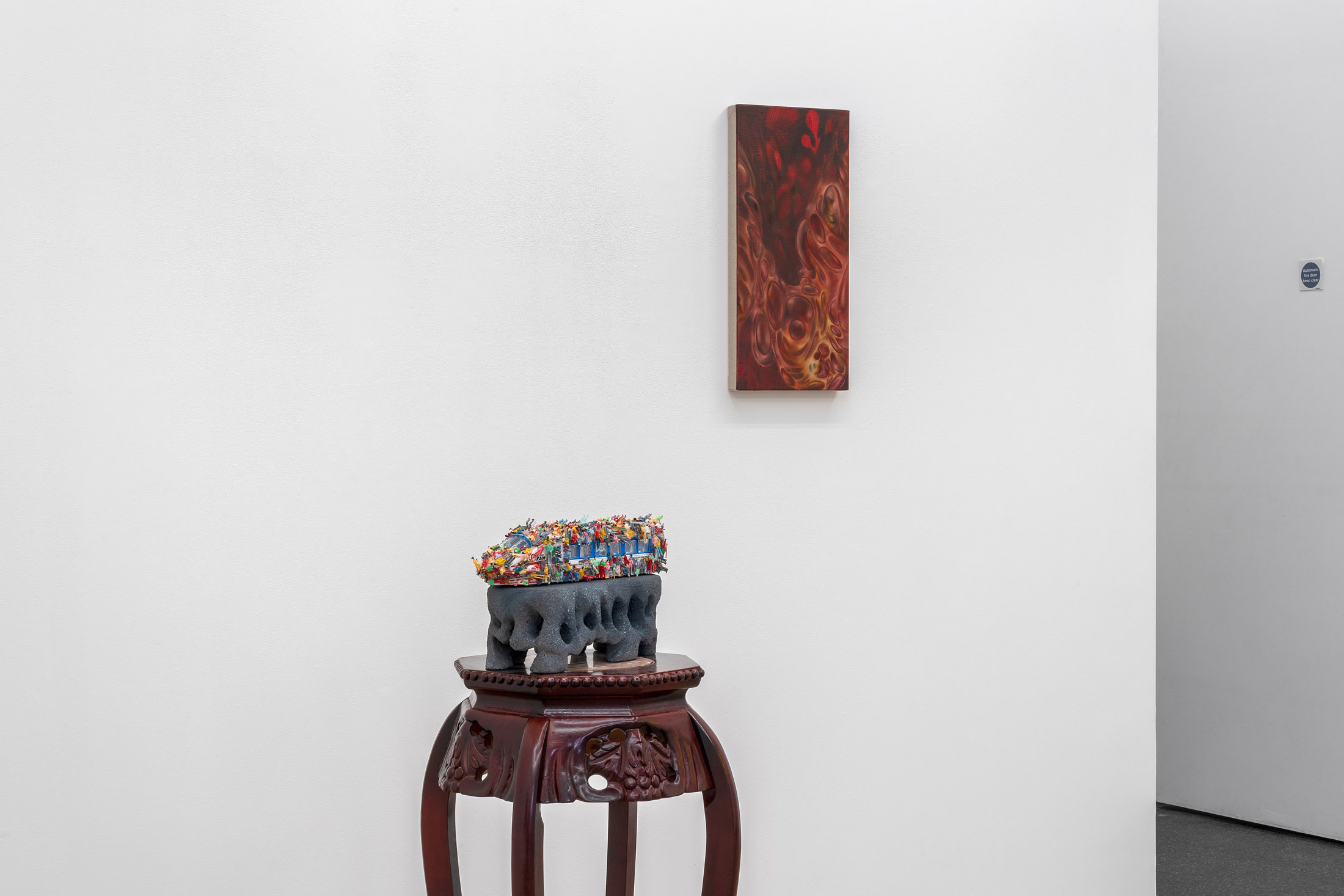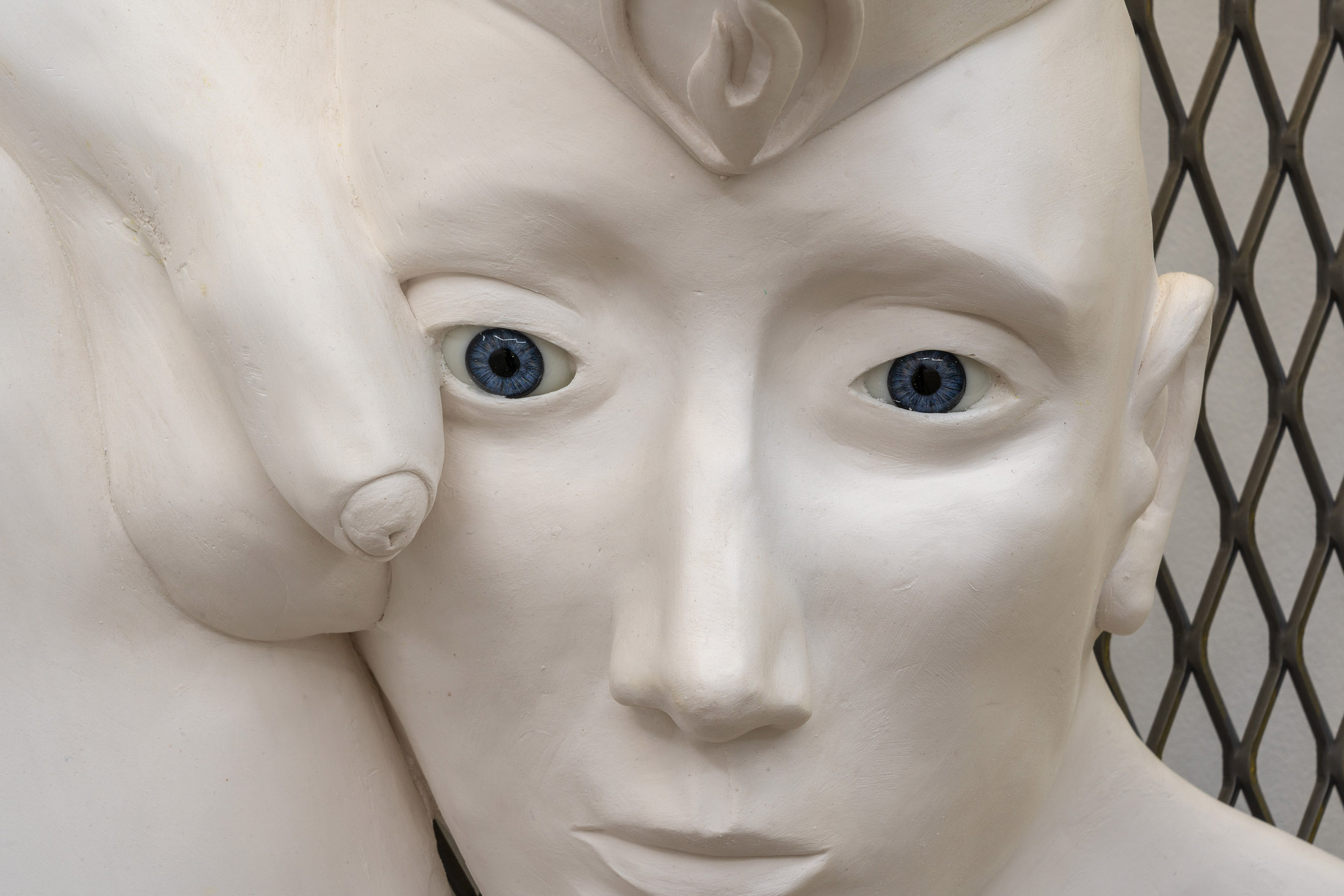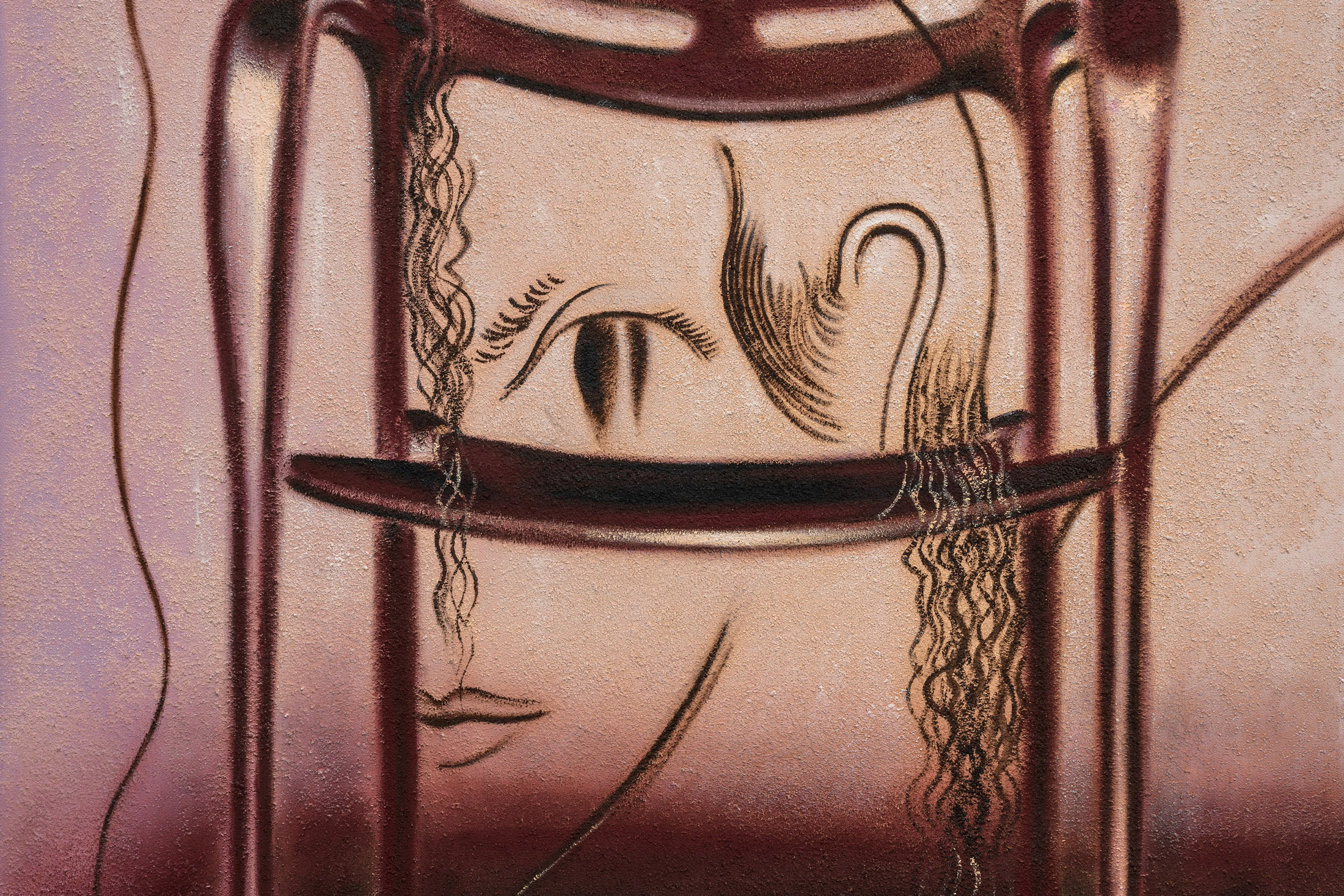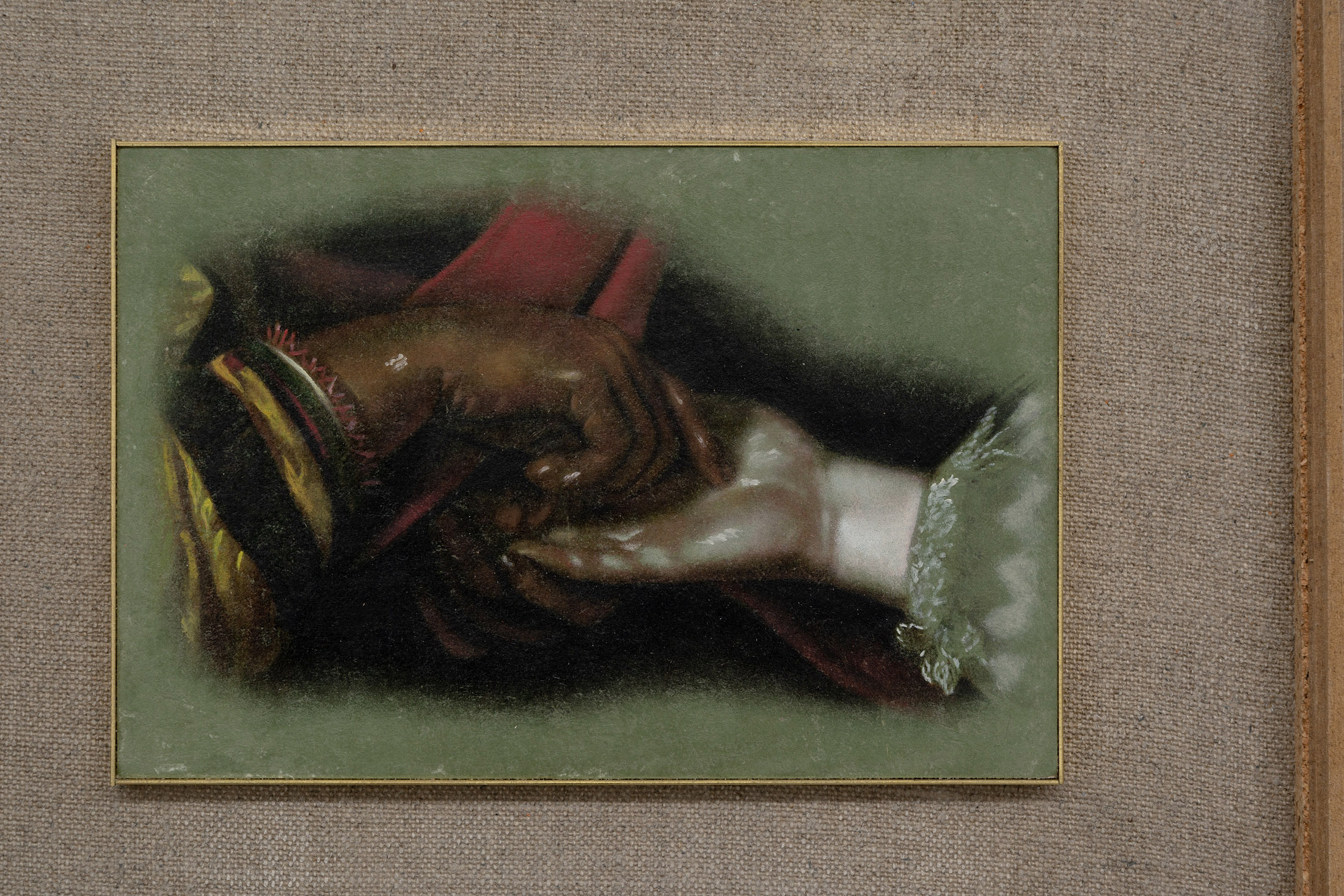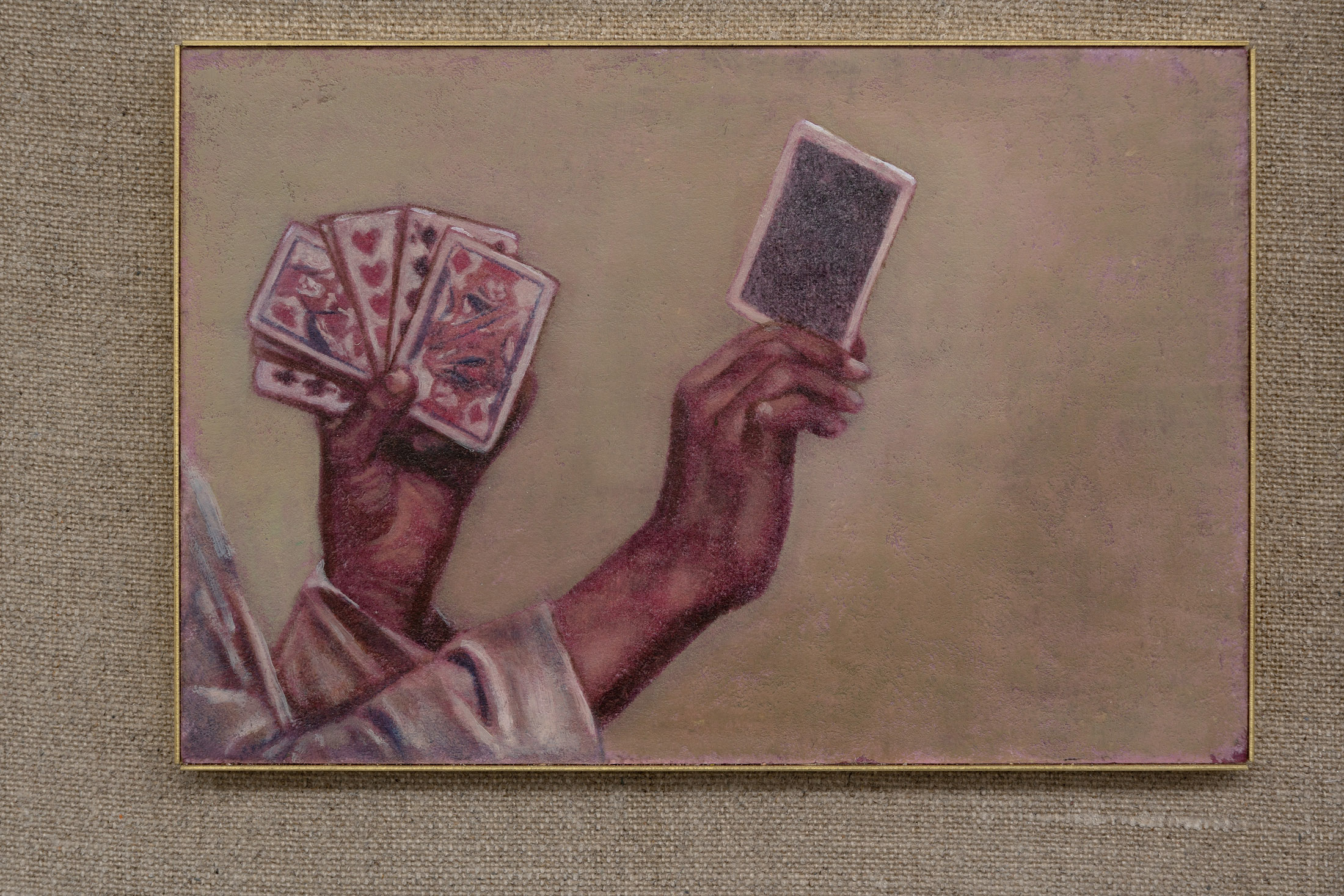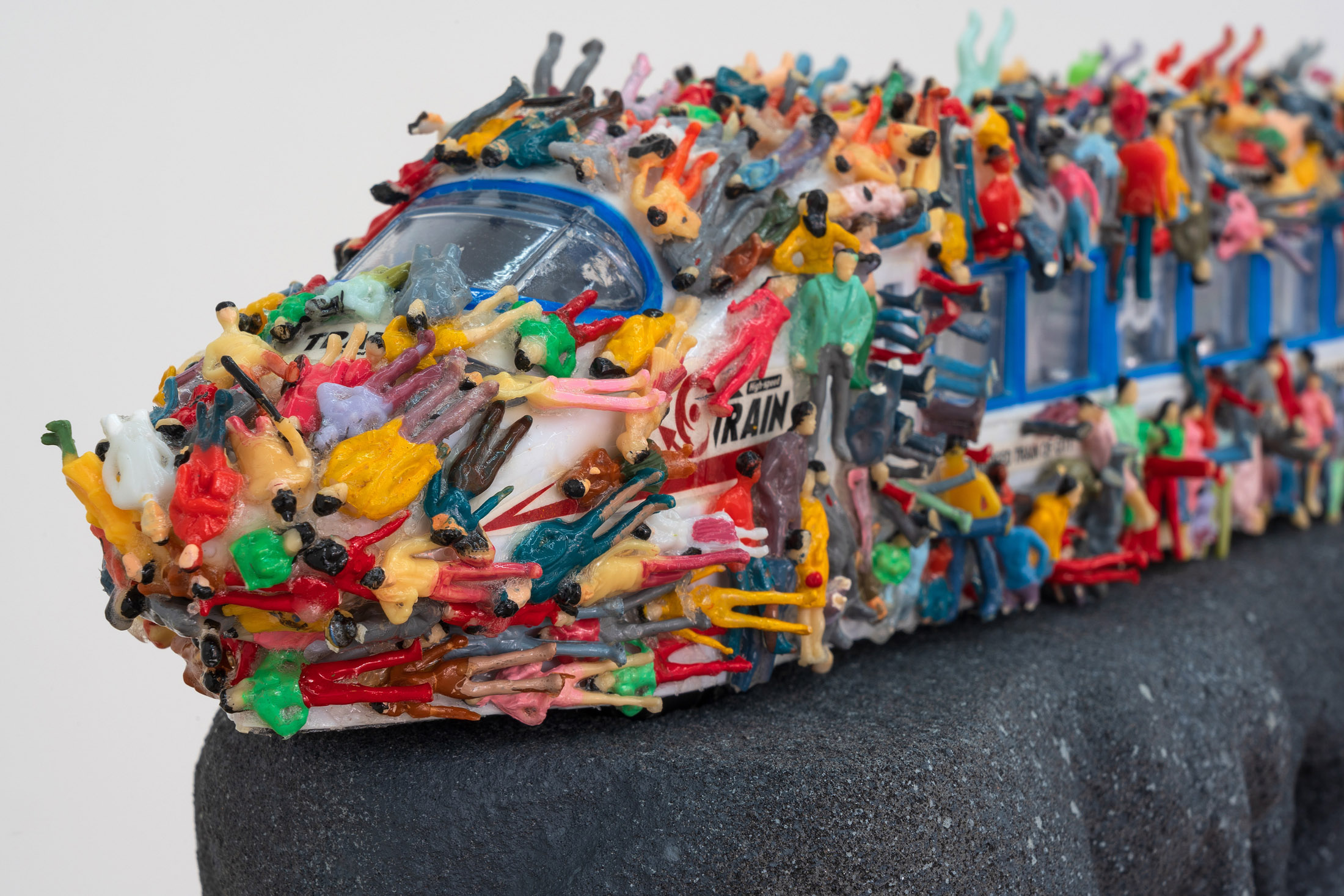Artists: Lyndon Barrois Jr., Aline Bouvy, Rob Branigan, Katarina Caserman, Héloïse Chassepot, Alexa Hawksworth, Jacopo Pagin, Meitao Qu, Divine Southgate-Smith
Exhibition title: The last train after the last train
Venue: Public Gallery, London, UK
Date: September 20 – October 28, 2023
Photography: all images copyright and courtesy of the artists and Public Gallery, London
“[…] They look like late-comers, a little as if it were possible to take still the last train after the last train – and yet be late to an end of history.” – Jacques Derrida, Specters of Marx (1993)
Public Gallery is pleased to present The last train after the last train, a group exhibition bringing together nine artists whose paintings, sculptures, and video-based practices prompt a consideration of the juncture between an unimaginable future and unrememberable past. Borrowing its title from Jacques Derrida’s Specters of Marx, the exhibition gestures towards the immateriality and potential warping of memory and time, and brings into focus the accumulation of waste, dissipation of individual freedoms, and possibilities of hope renewed when living at the end of times.
Set to the 1989 crumbling of the Berlin Wall, the dissolution of the Soviet Union, and the wave of optimism which overtook western democratic states, Derrida’s text concerns his theory on hauntology, or the memory and inheritance of Marx and his ghosts. Present difficulties of democratic, free market economies – the plight of the homeless, lack of adequate healthcare, environmental degradation, enormous national debt burdens — challenge optimistic models for the future, bringing us closer instead to Slavoj Zizek’s “apocalyptic zero-point” of the global capitalist system. To imagine the train after the last train requires a radically expansive perspective, a type of magical thinking.
Meitao Qu’s All Aboard the Glory Train (2023) directly references the false promise of social mobility in the face of a slowing economy and rising unemployment, demonstrating a hopeful desperation to crowd the train beyond capacity. Aline Bouvy’s jesmonite sculptures challenge moral and aesthetic notions of the acceptable, her parade of nudist police officers depicted with unbridled eroticisation in an ode to freedom and poetic transgression. The architectural utopias and speculative spaces of Divine Southgate-Smith’s sculpture MELA-9 Series: Past is Mourning (2023) and film AMONGST THE STARS, AGAIN (2023) celebrate community, possibility, and the quest for new imagined realities. Equally, such optimism grows from the vines and branches of Rob Branigan’s Yesteryear (2023), in which discarded objects emptied of their capitalist value are transformed and repurposed again.
If the workings of a haunting are such that they refer both to what is no longer present and that which has not yet happened, the specter exists wedged between the forgotten past and the future-to-come. To take the last train after the last train is to ride in the company of ghosts, of those not presently living; it raises a discourse on the politics of memory and perception, and inspires faith instead in a radical future reimagined.

